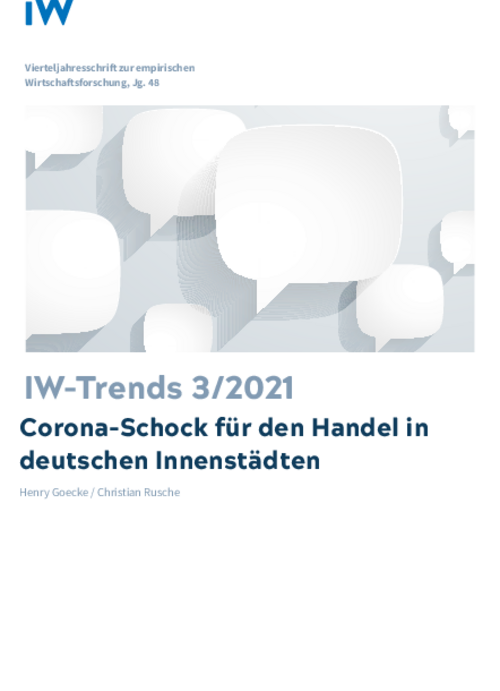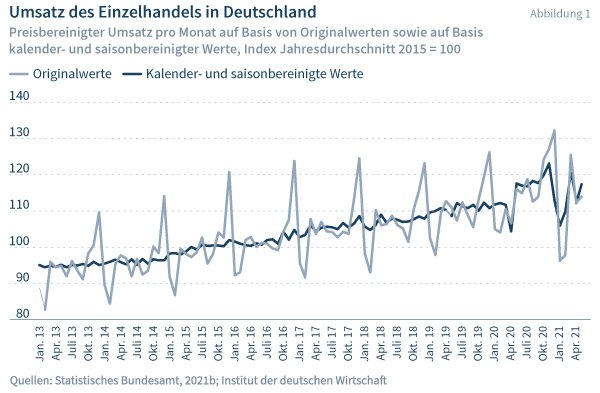The Corona pandemic and the measures taken to contain the virus have delivered an asymmetrical shock to German business. This asymmetry is exemplified by the effects on the retail trade, an import ant part of the nation’s economy.

A Coronavirus Shock for the Retail Sector in German City Centre: An Empirical Analysis with Footfall Data

The Corona pandemic and the measures taken to contain the virus have delivered an asymmetrical shock to German business. This asymmetry is exemplified by the effects on the retail trade, an import ant part of the nation’s economy.
While certain types of store have recorded significant increases in sales – and turnover in the retail sector as a whole increased in 2020 – other parts of the trade have experienced a considerable downturn. Downtown retailers have been particularly badly affected, suffering significant declines in turnover. Excluding e-commerce, in 2020 net sales in German city centres fell by around 9.4 billion euros to a little over 241 billion euros. In contrast, online sales continued to gain in importance during the pandemic and city centre retailers have also been able to generate additional sales through their internet platforms. With retailers’ turnover developing so differently and online trade increasing rapidly, the authors draw on footfall as a further indicator of how the pandemic has affected central business districts. On average, footfall in city centres has dropped by about one third and thus significantly more than downtown turnover, making clear that the substantial damage done to town centres has not been felt by all retailers there. By July 2021, footfall was already back to 90 per cent of pre-crisis levels and since passing trade figures also model the consumer climate very closely, recent developments certainly show the potential for a consumer recovery in the second half of 2021


A Coronavirus Shock for the Retail Sector in German City Centre: An Empirical Analysis with Footfall Data

More on the topic

Corporate Insolvencies on the Increase
After a prolonged decline, the number of corporate insolvencies has begun to rise again. The slight increase in 2022 could be interpreted as a step towards normalisation after the sharp drop experienced during the 2020/21 Covid19 pandemic.
IW
Industrial policy at the turn of the times
The current debate on industrial policy vacillates between the extreme positions of an orthodoxy of rejecting state action and a naive belief in the state's ability to control structural change.
IW